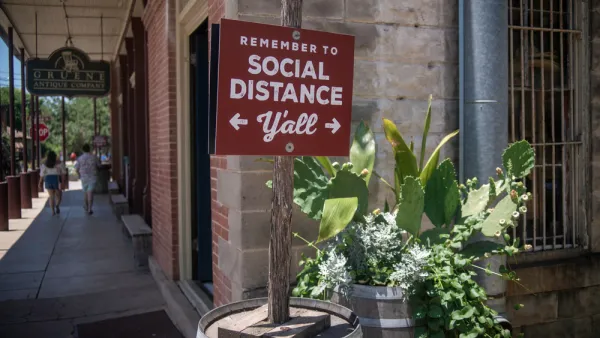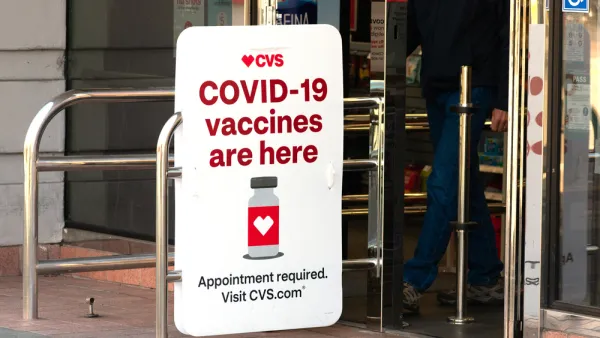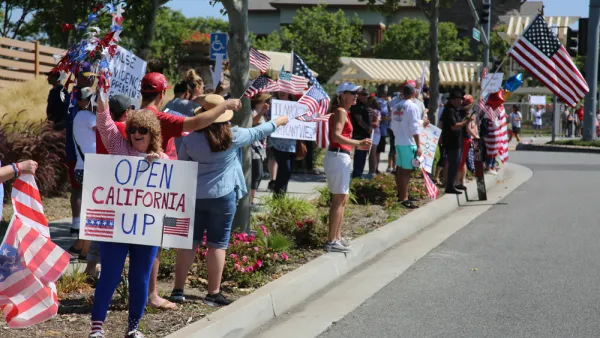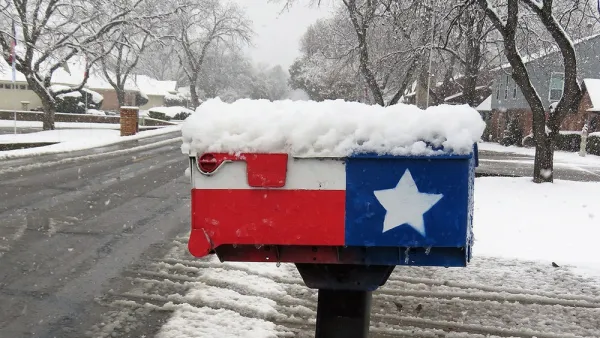Irvin Dawid discovered Planetizen when a classmate in an urban planning lab at San Jose State University shared it with him in 2003. When he left San Jose State that year, he took with him an interest in Planetizen, if not the master's degree in urban & regional planning.
As a long-time environmental activist, he formed the Sustainable Land Use committee for his local Sierra Club chapter and served six years on the Bay Area Air Quality Management District’s Advisory Council from 2002-2008. He maintains his interest in air quality by representing Sierra Club California on the Clean Air Dialogue, a working group of the Calif. Environmental Dialog representing business, regulatory and public health/environmental interests.
Major interests include transportation funding, e.g., gas taxes, vehicle miles traveled (VMT) fees, road tolls and energy subsidies that lead to unlevel playing fields for more sustainable choices.
He hails from Queens (Bayside) and Long Island (Great Neck); received an AAS in Fisheries & Wildlife Technology from SUNY Cobleskill and a B.S. from what is now Excelsior College.
After residing for three years on California’s North Coast, he’s lived on the San Francisco Peninsula since 1983, including 24 years in Palo Alto. Home is now near downtown Burlingame, a short bike-ride to the Caltrain station.
He’s been car-free since driving his 1972 Dodge Tradesman maxi-van, his means to exit Long Island in 1979, to the junkyard in 1988.
Major forms of transportation: A 1991 'citybike' and monthly Caltrain pass, zone 2-2. "It's no LIRR, but it may be the most bike friendly train in America."
Irvin can be reached at [email protected]

Mask Order Standoff in Texas: Attorney General vs. Austin and Travis County
It's pandemic déjà vu in the Lone Star State, with local governments wanting to protect their constituents from an increase in viral transmission, a power preempted by Gov. Abbott's executive order. Attorney General Ken Paxton lost the first round.

Experts: Fourth Coronavirus Surge Likely More of a Ripple
The worst appears to be over, say most of the more than 20 experts who spoke with NPR's science editor, Rob Stein. If there is going to be a surge, it will be more like a ripple, he suggested. Not everyone agrees.

Return to Normal: CDC Releases Initial Post-Vaccination Guidance
Millions of fully vaccinated Americans who have been anxiously awaiting new guidance from the Centers for Disease Control and Prevention on what they can now do safely were given initial recommendations that apply only to private settings.

Pandemic Watch: We've Been Here Before (but at Lower Case Levels)
The White House COVID-19 Response Team explains why governors are wrong to lift mask mandates and ease restrictions by putting the current level of coronavirus infections in the country in perspective, i.e., comparing it to the two prior surges.

Texas Grid Operator to Be Investigated by Congressional Subcommittee
Texas' costliest natural disaster will be the subject of a congressional investigation by a House Oversight subcommittee thanks to Rep. Ro Khanna, D-Calif., who is concerned about ERCOT's lack of preparation for extreme winter weather.

























